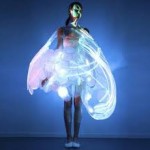
We have been participating in this Canada-wide celebration of science since 2015, but this year really is special. We could not be more enthusiastic about welcoming you to our McGill events, some virtual and others in-person. The theme of this year’s Science Literacy Week, taking place September 19-25, is Mathematics. It is such a wonderfully broad theme that, together with our campus partners, we were able to organize an array of learning opportunities for you.
I thought that I would break it down day by day with a few insights, but first there are two exhibits that have already launched and that you can check out right away. There is a Math / Music exhibit at the Marvin Duchow Music Library with materials from their collection that demonstrate the rich connections between the two disciplines. There is also a Mathematics Redpath Book Display, both physical (in the Humanities and Social Sciences Library) and virtual for some interesting reading material.
Monday
- Stats-wise (12-1pm; in person): I was a student of Professor Rhonda Amsel during my undergrad at McGill (last century!) and she truly is a wonderful educator. I cannot wait to hear her talk about the ‘why’ of statistics. This presentation is for everyone.
- Introduction to Working with Data in Excel (2-4pm; virtual): This is hands-on experience for the absolute beginner.
Tuesday
- The Art of Explaining Science to Non-Specialists (12-1pm; virtual): Who better to introduce this important skillset than Science Communication Specialist at the Office of Science Education, Diane Dechief? I promise that this will be one hour well spent.
- Plant Walk and Harvest (12-1pm; in person): The folks at Redpath Museum have been huge supporters of Science Literacy Week since the beginning. There are limited spots available for this McGill garden tour.
- Intro to LaTeX (2-3pm; virtual): Get some LaTeX practice using the free online editor, Overleaf.
Wednesday
- Intermediate Data Analysis in Excel (10am-12pm): Our librarian experts are taking it to the next level! If you are new to Excel, tune in to our beginner course on Monday.
- Scholarship at the Source: Allister Neher on Art and Anatomy in Nineteenth -Century Britain (4-5pm; choose between in person and virtual): Hear from Allister Neher, research associate of the Osler Library of the History of Medicine, on his book, Art and Anatomy in Nineteenth-Century Britain.
Thursday
- Analyzing Risk with Dr. Joe Schwarcz (12-1pm; virtual): Dr. Joe, Director of the McGill Office for Science and Society, will give us a lesson in risk/benefit analysis. I’ll be there!
- Science History Treasures at McGill Library (drop in 1-4pm; in person): There are so many treasures to explore in this temporary exhibit. Did you know that we have Newton’s own copy of Opticks with his handwritten notes?(!)
- A First Look at Programming in Python (2:30-4pm; in person): We are lucky to have Let’s Talk Science participate again this year with a beginner’s guide to Python. Don’t be shy, come and learn some programming!
Friday
- Tour of the Maude Abbott Medical Museum (11-11:45am; in person): This fascinating tour of the museum in the Strathcona Anatomy and Dentistry Building is not to be missed. They have materials on the study and practice of medicine at McGill dating back to the early 19th century.
- Charting Numbers for Understanding and Communication (12-1pm; virtual): Our Assessment Librarian, Giovanna Badia, knows a thing or two about charts. I recommend this workshop if you have your own research project and want to learn about the different ways to represent results.
- Learn to Spin! Drop-in and try out a 3D printed spindle (Drop in anytime from 2:30-4:30pm): This is me! I wanted to encourage everyone to try out our Library 3D printers, while simultaneously introducing this spindle spinning skill. Please drop by to chat about 3D printing or fibre arts, or try out a spindle yourself.
- Guided Tour: Stones of Mont Royal (5:45-7pm; in person): Get your steps in with another great offering from the Redpath Museum.
That’s it so far. I’m sorry for all of the exclamation marks (it’s exciting). Register today for a workshop, or join us for one of the drop-ins. I hope to see you around 🙂


 This year’s
This year’s 


